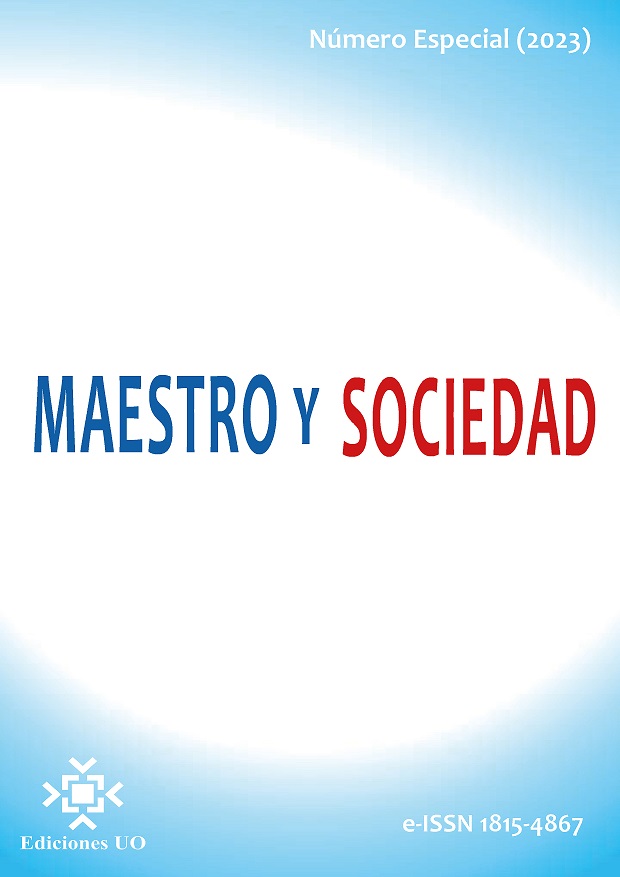The creation of extensionist teaching capacities for advice of community work integrated in the Turquino Plan
Keywords:
University Extension, capacity building, Integrated community work, Turquino planAbstract
This research is aimed at promoting the results obtained in the institutional project Alternatives for sociocultural
development in areas of the Turquino Plan in the period 2015-2020. An important aspect of local development is
addressed, referring to the importance of creating extension teaching capacities for sociocultural advice on integrated
community work in these rural areas. Its objective is to implement sustainable local development actions in the
communities of the popular councils of areas of the Turquino Plan Yerba de Guinea, Tí Arriba, Maya Oeste (Spartillar),
Salvador Rosales (Loma del Gato), Jutinicú, La Test, San Benito ( La Mecca), Jarahueca, Matahambre and El Manguito
(California and La Genoveva). To improve the results of the aforementioned process, scientific methods and techniques
of educational research were used, according to the study and the problems detected.
References
Colectivo de autores. (2018). Guía para la evaluación de impacto de la formación profesional ¿Qué son y cómo se construyen los indicadores en la evaluación de impacto? https://guia.oitcinterfor.org›como-evaluar-como-se-construyen-indicadores
Núñez Jover, J. (2017). Conocimiento, desarrollo y centros universitarios municipales.Revista del MES. Noticias.
Rodríguez Fernández, C. A. (2009). Sistema de procedimientos para la formación de la competencia comunicativa extensionista, en los docentes en formación. Tesis doctoral.
Sánchez Manzano, M. (2003). La Extensión ante los nuevos escenarios de la universidad cubana: una visión. [Tesis de máster. Universidad de Oriente].
Published
How to Cite
Issue
Section
License
Copyright (c) 2023 Guillermo Rivero Jaca, Martha Martínez Pérez, Yudermis Ortiz García

This work is licensed under a Creative Commons Attribution-NonCommercial-NoDerivatives 4.0 International License.
This journal provides immediate open access to its content, based on the principle that offering the public free access to research helps a greater global exchange of knowledge. Each author is responsible for the content of each of their articles.



























 Universidad de Oriente
Universidad de Oriente 